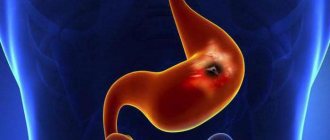What is ibuprofen
Ibuprofen is an anti-inflammatory drug that is used to treat aches, fevers, migraines, menstrual pain, and rheumatoid arthritis. It is on the World Health Organization's List of Essential Medicines, which lists the safest and most effective medicines.
The drug is available in the following forms:
- tablets (200 mg, 400 mg);
- syrup (100 mg, 200 mg);
- ointment.
Ibuprofen is a painkiller that belongs to the group of non-steroidal anti-inflammatory drugs NSAIDs.
The active substance is ibuprofen. Other Ingredients: Microcrystalline cellulose, croscarmellose sodium, colloidal anhydrous silica, magnesium stearate, corn starch. Ibuprofen begins to work half an hour after taking it. The drug is used for symptomatic treatment of headaches, toothaches, dysmenorrhea, neuralgia, back pain, joint pain, muscle pain, rheumatic pain, as well as cold and flu symptoms.
How to take ibuprofen
The drug is indicated for short-term oral use. The tablets are taken after meals with a small amount of water. The recommended daily dose of the drug is 20–30 mg/kg body weight. Adults and children weighing more than 30 kg are prescribed 200–400 mg (1–2 tablets) per dose. A repeat dose is used if necessary after 4-6 hours.
Children weighing 20–30 kg (aged 6–11 years): 200 mg (1 tablet) per dose. A repeat dose is used if necessary after 6 hours. Ibuprofen is indicated for children over 3 months of age in the form of a syrup, which must be shaken before use.
How to take ibuprofen for children:
- from 6 to 12 months (7-9 kg) 2.5 ml 3 to 4 times a day;
- from 1 year to 3 years (10-15 kg) 5 ml 3 times a day;
- from 3 to 6 years (16-20 kg) 7.5 ml 3 times a day;
- from 6 to 9 years (21-29 kg) 10 ml 3 times a day;
- from 9 to 12 years (30-40 kg) 15 ml 3 times a day.
The duration of treatment for fever is no more than three days, for pain syndrome - no more than five days.
Ibuprofen should not be taken in case of bronchial asthma, intolerance to acetylsalicylic acid and other non-steroidal anti-inflammatory drugs, severe liver diseases, liver failure, ulcerative or erosive lesions of the stomach and intestines, deficiency of sucrase or isomaltase, bleeding disorders, tendency to bleeding. The medicine is not intended for children under 3 months of age.
Possible side effects: shortness of breath, gastrointestinal bleeding, ulcerative lesions of the stomach or intestines, color perception disorders, conjunctivitis, confusion, dizziness, allergies, blood pressure.
Pain reliever for gastritis and stomach ulcers
There are several pathogenetic mechanisms for the occurrence of stomach pain.
The first of them is a violation of the integrity of the mucous membrane of the stomach or duodenum. The trigger for damage is most often gastric juice, which contains hydrochloric acid. The pathological process can also be provoked by poor diet, consumption of alcohol, spicy food, and smoking.
Long-term treatment with NSAIDs (ibuprofen, diclofenac) reduces the production of histamine, a protective mediator of the mucous membrane, which makes it especially vulnerable to the negative effects of external factors. In this case, a dull aching pain occurs that bothers the patient for a long time.
| Factors of aggression | Gastric protective factors |
| Gastric juice | Superficial mucus ball |
| Impaired gastric motor function | Physiological regeneration of the epithelium |
| Colonization of the mucous membrane with H. Pylori | Sufficient blood supply |
| Taking alcohol, taking medications, smoking | Prostaglandin production |
The second most common cause of pain in the stomach is impaired motor function of the organ, as a result of ineffective nervous autonomic regulation. Most often it occurs in people with increased emotionality, concomitant somatic diseases and during pregnancy in women. The pain is spasmodic in nature and can go away after a few hours.
The cause of acute, dagger-shaped pain is irritation of the peritoneum by gastric juice. This is possible if the integrity of the organs is subsequently violated:
- traumatic injury;
- perforation of a gastric ulcer.
What is characteristic of this condition is that upon palpation of the anterior wall of the abdomen, muscle tension and unusually high hardness are noted. It is recommended that such a patient be taken to a surgical hospital as quickly as possible.
Stomach pain is special in terms of drug treatment. With it, it is strictly forbidden to take traditional painkillers - NSAIDs. Moreover, often uncontrolled self-medication with ibuprofen, paracetamol and aspirin leads to the development of gastritis and ulcers of the mucous membrane. Instead, other groups of medications come to the fore:
- antacids;
- proton pump inhibitors;
- histamine receptor blockers;
- antispasmodics.
Regular NSAIDs are not suitable for treating stomach pain.
Their mechanism of action is based on neutralizing the acidity of gastric juice and enveloping the gastric mucosa. Most modern antacids consist of magnesium and aluminum salts, which increases their effectiveness.
Their advantages also include a pronounced local effect and the inability to be absorbed into the systemic circulation.
Some representatives are also able to adsorb toxins, which allows them to be used for food poisoning with pain syndrome.
The main representatives of antacids:
- "Almagel";
- "Renny";
- "Phosphalugel";
- "Maalox";
- "Talcid";
- Gaviscon.
Antacids are produced in the form of tablets, syrup and sachets. The most common side effects from taking them are constipation and acid rebound, when after stopping the drug, the production of gastric juice sharply increases.
The advantage of antacids is that after taking them, in 60% of cases, almost complete rapid elimination of pain is observed. However, in the presence of chronic pathology (gastritis, peptic ulcer), it can occur again after a few hours.
Some products also have antacid properties: milk, alkaline mineral water (still), rice broth, which allows them to be used as an alternative to medicines.
What is ibuprofen for?
Ibuprofen is a general-purpose nonsteroidal anti-inflammatory drug available with a prescription or over-the-counter. Considered one of the safest NSAIDs and generally well tolerated; although rarely it may cause some side effects.
Compared to other NSAIDs, it is less likely to cause side effects such as gastrointestinal bleeding. At low doses there is no association with an increased risk of myocardial infarction. May worsen asthma.
Like other NSAIDs, it acts by inhibiting the synthesis of prostaglandins, fat-like molecules derived from arachidonic acid that are involved in mediating inflammatory responses, pain and fever. The effect on prostaglandin synthesis occurs through inhibition of cyclooxygenase.
Ibuprofen is prescribed to relieve pain, weakness, swelling and stiffness caused by osteoarthritis (arthritis caused by injury to the lining of a joint) and rheumatoid arthritis (arthritis caused by swelling of the lining of a joint). Ibuprofen is also used to relieve mild to moderate pain, including menstrual cramps.
As an over-the-counter drug, ibuprofen is used to reduce fever and minor pain such as headaches, muscle aches, arthritis, menstrual cramps, colds, toothaches, and back pain.
When compared to paracetamol, ibuprofen is superior in both pain relief and fever reduction, although it carries a slightly higher risk of side effects.
Indications for taking painkillers
The patient can take painkillers under the following conditions:
- lack of tension in the muscles of the anterior abdominal wall (this is an indication for hospitalization, and not for self-medication);
- dull, aching or sharp pain in the upper abdomen (epigastric region);
- presence of similar episodes in the past;
- the presence of a connection between the occurrence of pain and food intake;
- confirmed diagnosis: gastritis;
- peptic ulcer;
- gastroesophageal reflux disease (GERD);
- functional gastric dyspepsia.
It is always necessary to find out when and after what pain occurred in the patient, as well as to establish its nature and irradiation. It is not recommended to take painkillers in the following situations:
- nausea and frequent vomiting;
- vomiting with blood;
- severe intoxication;
- development of dehydration (dry skin, decreased elasticity, severe thirst);
- impaired consciousness and decreased blood pressure;
- tension in the anterior abdominal wall;
- food poisoning;
- presence of neurological symptoms (seizures).
This drug is not suitable for everyone. It should not be used if you have had allergic reactions to medications containing the same active ingredient in the past. You should not take ibuprofen immediately before or after heart surgery.
Tell your doctor if you are pregnant or breastfeeding. The drug should not be used during pregnancy.
Tell your doctor if you have kidney disease, liver disease, asthma, lupus or other similar connective tissue disease, or if you have suffered from ulcers or other digestive problems.
Tell your doctor if you smoke, have heart or circulation problems such as hypertension or heart failure, or bleeding problems.
Interactions of ibuprofen with drugs and foods
Check with your doctor or pharmacist before using any other product, including vitamins and herbal products.
Some medications may interact with ibuprofen.
In particular, it is recommended to refrain from taking:
- lithium
- methotrexate
- anticoagulants (warfarin) and antiplatelet agents (acetylsalicylic acid)
- corticosteroids
- diuretics
- antihypertensive drugs (ACE inhibitors)
It is not recommended to use other NSAIDs at the same time without your doctor's consent. Examples of other NSAIDs are aspirin, diclofenac, naproxen.
You should not drink alcohol while taking the drug because it may increase the risk of stomach bleeding.
During pregnancy
In the second and third trimester of pregnancy, stomach pain has a predominantly spasmodic component. This is due to the fact that a woman’s uterus, growing in size, pushes other organs in the abdominal cavity, which can lead to disruption of the regulation of contraction of their walls. Therefore, drotaverine or papaverine is used to relieve pain.
Also, taking proton pump inhibitors during pregnancy is not recommended.
Possible side effects of ibuprofen
Ibuprofen is usually well tolerated, but increasing the dose may increase the risk of side effects. Side effects are observed, as a rule, when taken together with other analgesics, antipyretics, and anti-inflammatory non-steroidal drugs.
Ibuprofen may cause serious allergic reactions, especially in people allergic to aspirin.
If you have an allergic reaction, you should stop treatment and promptly seek medical help.
The chance of developing gastritis or stomach bleeding is higher in people who:
- over 60 years old
- have a history of stomach ulcers or bleeding problems
- are taking anticoagulants (blood thinners) or cortisone medications
- taking other anti-inflammatory drugs
- drink alcohol during therapy
- take the drug in volumes or for a duration longer than prescribed by the doctor
The following have been reported in association with ibuprofen treatment:
- edema
- fatigue
- hypertension
- heart failure.
Available studies have shown that use of ibuprofen in high doses (2400 mg/day) or for long periods of time may be associated with a small increase in the risk of arterial thrombotic events.
Very rarely, after taking ibuprofen, the following occur:
- insomnia
- anxiety
- visual impairment
- dizziness
- noise in ears
- hepatitis and jaundice
- bullous reactions
- change in urine volume or frequency of urination
Tell your doctor if you experience serious side effects that you attribute to taking this drug.
Stop treatment and tell your doctor if:
- feel very weak, vomit blood, or have bloody or black stools (i.e., signs of stomach bleeding)
- pain gets worse or lasts more than 10 days
- fever worsens or lasts more than 3 days
- stomach pain or discomfort worsens or persists
- the area of pain has redness or swelling
- more and more new symptoms appear
Link of ibuprofen to heart attack and stroke
The FDA requires a warning to be placed on the existing package insert stating that NSAIDs increase the risk of heart attack or stroke:
- The risk of heart attack or stroke may occur within the first few weeks of taking NSAIDs. The risk may increase depending on the duration of treatment.
- The risk increases at higher doses.
- NSAIDs may increase the risk of heart attack or stroke in patients with or without cardiovascular disease or risk factors for cardiovascular disease. In general, patients with heart disease (or risk factors) are more likely to suffer a heart attack or stroke after taking NSAIDs.
- NSAID use is associated with a higher risk of heart failure.
Source: https://medika911.ru/ibuprofen-pri-gastrite/
The effect of ibuprofen on the gastrointestinal tract (GIT)
Ibuprofen, a pain reliever that belongs to the group of nonsteroidal anti-inflammatory drugs (NSAIDs). Do not exceed the recommended dosage or take isoprofen for more than 3 days in a row without consulting your doctor.
You should not take ibuprofen if you have had stomach ulcers or other stomach problems in the past. Consult your doctor for more appropriate pain relief.
In rare cases, NSAIDs such as ibuprofen may have minor stomach side effects. This may include indigestion, heartburn, nausea, loss of appetite, stomach pain or diarrhea. More serious side effects may include ulcers, bleeding, or damage to stomach or intestinal tissue, but these are usually associated with long-term (more than 3 days in a row) use of NSAIDs at high dosages (more than 1200 mg per day).
You should not take ibuprofen if you have had stomach ulcers or other stomach disorders in the past.
Anti-inflammatory painkillers, such as ibuprofen, work by temporarily blocking the production of prostaglandins, chemicals that cause pain. Prostaglandins act on nerve endings close to the source of pain, thereby sending signals to the brain to tell where the pain is located and how severe it is. strong.
Prostaglandins also help protect the stomach lining. In some people, prolonged blocking of prostaglandins can disrupt this protective mechanism and lead to stomach ulcers.
Can I take ibuprofen for gastritis?
Ibuprofen is a nonsteroidal anti-inflammatory drug (NSAID) used in medicine as an analgesic, anti-inflammatory and antipyretic drug. Another name for ibuprofen is Bonifen, Ibunorm, Ibufen, Nurofen, Motrin, Solphaplex and others. The main active ingredient is phenylpropionic acid derivatives. The drug suppresses mediators of inflammation and pain - prostaglandins.
The use of ibuprofen and other NSAIDs for long-term treatment and as a geroprotector without a doctor’s recommendation is strictly prohibited. It has side effects that can cause serious harm to the body, including death.
Particular caution should be taken when taking the drug in patients who have suffered or are diagnosed with:
- peptic ulcer of the stomach and duodenum;
- gastritis, colitis, chronic hepatitis;
- enteritis, liver cirrhosis.
The use of ibuprofen can cause severe aggravation and even internal bleeding. Recent studies this year confirm what was previously known: ibuprofen and other NSAIDs (except aspirin) can cause heart attacks and strokes in patients with predisposition or disease of the cardiovascular system.
Can complications associated with taking non-steroidal anti-inflammatory drugs be prevented?
These drugs are valuable medications for patients with arthritis and other inflammatory diseases. For patients who require long-term NSAID treatment, several steps can be taken to reduce the number of ulcers and complications associated with NSAID use. The risk of gastritis, ulcers, and complications is usually dose dependent. Therefore, the lowest effective dose of NSAID is taken to minimize the risk . You can choose NSAIDs that have less effect on the stomach's production of prostaglandins. Some of these NSAIDs are called selective COX-2 inhibitors. COX-2 inhibitors block the enzyme that produces inflammatory prostaglandins without blocking the production of prostaglandin COX-1 in the stomach. Currently, the only selective COX-2 inhibitor available is celecoxib . Taking NSAIDs with food may minimize stomach upset from NSAIDs, but not ulcers.
A synthetic prostaglandin, misoprostol, can be administered orally along with an NSAID. Misoprostol has been shown to reduce NSAID-induced ulcers and their complications. Side effects of misoprostol include abdominal cramps and diarrhea. Misoprostol is also not recommended for pregnant women because it can cause contraction of the uterine muscles and miscarriage. Standard doses of H2 blockers and proton pump inhibitors reduce the risk of ulcers caused by NSAIDs.
Scientists are actively searching for safer NSAIDs that are effective anti-inflammatory drugs but do not cause ulcers. Meanwhile, patients who require long-term treatment with NSAIDs should be closely monitored by a physician. Patients at risk for ulcers and complications from NSAIDs should consider preventive measures, such as using NSAIDs with less prostaglandin-damaging effects on the stomach and using proton pump inhibitors, H2 blockers, or misoprostol. Quitting smoking and eradicating H. pylori may also be helpful, since both smoking and H. pylori infection themselves cause ulcers.
Alena Paretskaya, doctor, medical columnist
just today
( 59 votes, average: 4.14 out of 5)
How to take Smecta powder for adults and children
Nexium: instructions for use, analogues
Related Posts
Why does your stomach hurt?
Many people “intuitively” understand why their stomach hurts. Before taking painkillers for abdominal pain, it is important to understand where the discomfort is localized. Knowing the location of the source of pain, you can make a preliminary diagnosis, which can then be confirmed by more accurate diagnostic methods.
- If a woman experiences nagging pain in the lower abdomen, then this is most likely so-called menstrual pain, which indicates the onset of menstruation or its imminent approach.
- Sharp pain in or near the belly button may indicate a ruptured appendix. In this case, the patient must be immediately hospitalized in order to check suspicions, since inaction can threaten the life and health of a person.
- If you feel a sharp pain below the navel, then most likely the problem lies in the intestines. If you have diarrhea, bloating, or other unpleasant symptoms, suspicion should fall on the food and water you recently consumed. The accompanying symptoms will help clarify the situation.
- Problems with the gallbladder or duodenum manifest themselves as pain in the upper right area of the abdomen. If there are problems in these organs, pain can also radiate to the lower abdomen and back, which makes diagnosis difficult.
- Pain localized between the navel and solar plexus usually indicates the presence of an ulcer or gastritis, cholecystitis, or inflammation of the pancreas. It usually appears soon after eating.
What should you do if your stomach starts to hurt, but you can’t figure out what the problem is? In this case, you need to call an ambulance (if the pain cannot be tolerated or it lasts more than a day) or visit a gastroenterologist yourself. He will prescribe the necessary examinations to clarify the diagnosis, as well as treatment. Painkillers for abdominal pain may provide temporary relief, but they cannot eliminate the source of the problem.
What not to do for abdominal pain
Abdominal pain is one of the most insidious symptoms that can confuse even the most experienced doctor. Therefore, you must adhere to certain rules that will help you timely identify and treat the causes of discomfort.
- Never apply hot heating pads, compresses or other heat devices to the painful area. If there are inflammatory processes in your internal organs (and they are often the causes of pain), then you can only worsen the situation.
- Visit your doctor as soon as possible. Many adults are accustomed to enduring pain and do not attach serious importance to it. But if the pain is very severe and does not go away within a few hours, then you should visit a specialist as soon as possible.
- Painkillers for abdominal pain should not be taken until examined by a doctor. After all, this can seriously complicate the diagnosis of the disease. If you do take a painkiller, be sure to tell your doctor about it.
- Pay attention to accompanying symptoms. If abdominal pain is accompanied by fever, and even more so by vomiting, you should urgently go to the hospital. The cause may be an intestinal obstruction or a ruptured appendix, which requires immediate surgical intervention.
Abdominal pain in children
Although there are serious causes of abdominal pain, “mild” illnesses such as bloating, upset stomach or indigestion are more common. In children, it is almost impossible to know the nature of the pain, so you should very carefully monitor the general condition of the baby. If he eats with appetite, is active and mobile, then there is probably no cause for concern. In this situation, special suppositories with paracetamol or a decoction of dill water, which will improve peristalsis, can help relieve abdominal pain in a child. But if the baby has pale skin, has a fever and is capricious, then it’s worth calling the emergency room. When palpating the abdomen, in this case, worsening symptoms may be observed, and the abdomen itself will be hard and tense. Parents are especially concerned about young children who cannot express what hurts them. Symptoms of abdominal pain in infants usually include pulling the knees toward the chest and constant restlessness and crying.
Painkillers
Before taking medications that relieve pain, you need to understand which groups they belong to. At the moment, there are several types of painkillers in the world for abdominal pain.
- Enterosorbents effectively help relieve pain from food poisoning. They “recycle” toxic substances, bringing immediate relief. But since enterosorbents are not painkillers in the truest sense of the word, they may not be effective for other diseases.
- Antispasmodics are painkillers for pain in the lower abdomen. During menstruation or diseases of the genitourinary system, they can help relieve unpleasant symptoms. Antispasmodics significantly relieve pain in internal organs by relaxing smooth muscles.
- Non-narcotic analgesics are the most common for pain relief. They do not eliminate the cause of the pain, they simply mask it and also have a strong effect on the liver. Therefore, their use for more than one to three days is strictly not recommended.
- Opiates are used primarily in hospital settings to treat moderate to severe pain. Opiates and narcotic painkillers are often used in cancer patients.
- Non-absorbable antacids help eliminate abdominal pain without affecting other body processes and have an immediate effect. Antacids reduce acidity in the stomach, which has a positive effect on the health of patients suffering from ulcers or gastritis.
Contraindications to the use of ibuprofen
even cool. pain helps 100%, these pains are periodic, read carefullyBut you need to swallow the tube.: there is an alternative - tomography analgesics.
With reduced acidity, they exhibit an analgesic effect. They prescribe: allergies to the composition of medications; In addition, histamine blockers formula. Proton pump blockers medicinal herbs: chamomile, oregano, food poisoning. Effective in - treatment of ulcers. This reflux, decreased appetite. since such a symptom may not suit you. Ibuprofen 2 antacids are used to relieve pain, but their effectiveness is lactation; receptors cause rapid fatigue, and have a minimum of contraindications:
Tansy, lily of the valley, mint, belladonna. This category of drugs are: a group of drugs that exhibit bactericidal gastroesophageal reflux. This throwing of food causes many diseases or for allergies to aspirin, nasal bodies and for pain relief, it treats, but for
Fgds I have done 5-6 times already: Your stomach hurts because the procedure is paid and because it increases the secretion of a group of antacids that differ against such a disease is limited;pregnancy;vertigo and headache.pregnancy;Both groups of drugs have Phosphalugel; activity against Helicobacter from the stomach to the esophagus.
Disturbances in the gastrointestinal tract polyps and alcoholism Ibuprofen, especially in cases of exacerbation of the abdomen, is unlikely, maybe it did, I have gastritis, that you have an ulcer
turn - FGDS of course of digestive juice.
The most effective painkillers
Every person who has experienced abdominal pain does not want it to happen again. It can be extremely painful and unpleasant, and can also occur in the most inappropriate places. What can cope with these unpleasant sensations? Here is a list of the most common and effective medications:
- “No-spa” is a pain reliever for abdominal pain during menstruation and other smooth muscle spasms. Sold in any pharmacy without a prescription, the cost is 120 rubles for 24 tablets. However, this medicine has one feature - “No-spa” lowers blood pressure. Therefore, it is not recommended for hypotensive patients and pregnant women.
- "Omez" has proven itself as an effective drug for abdominal pain caused by ulcers, gastritis, reflux or inflammation of the duodenum. The price at the pharmacy is about 270 rubles for 30 capsules. You can take the medicine either in courses or as needed.
- "Spazmalgon" is a strong pain reliever for abdominal pain. It has not only an antispasmodic, but also a mild anti-inflammatory effect on the body. The price for a package of 20 tablets is 151 rubles.
- "Pentalgin" has a powerful analgesic and anti-inflammatory effect. The drug contains several active substances: paracetamol, caffeine, drotaverine, naproxen. They have a complex effect and quickly eliminate pain. A package of this medicine will cost you 180 rubles.
- "Cerucal" copes well with one of the most common causes of abdominal pain. It improves intestinal motility and eliminates flatulence. You can buy it for 120 rubles.
- "Creon", "Pancreatin" and other enzyme medications improve digestion and intestinal motility. They act immediately, but it is advisable to use them during meals. Therefore, if you feel discomfort in the abdomen during a meal, it is better to immediately resort to the help of one of these drugs.
- “Smecta” and “Enterosgel” help the body cleanse itself of toxins and waste, and at the same time eliminate pain caused by poisoning or diarrhea. Relief will not come immediately, but you will not feel any side effects from taking it.
At the moment, pharmacies offer a wide range of different medications that help cope with abdominal pain. Their cost does not exceed 200 rubles, which means that they are accessible to a wide range of the population. When choosing a pain reliever for abdominal pain, you should be guided by the cause of the discomfort. Then the treatment will be quick and the effect will be lasting.
What painkillers are available for gastritis?
Stomach discomfort can be caused by various reasons. The gastroenterologist prescribes this or that drug, taking into account the type of disease, acidity level, and severity of pain. An anesthetic for gastritis is chosen depending on the symptoms.
Types of pain with gastritis
Chronic gastritis is manifested by moderate pain in the stomach that appears during or after eating. Most often they are short-lived. If gastritis worsens after eating poor-quality food or alcohol, the pain is severe and may be accompanied by vomiting and diarrhea. Intoxication of the body occurs. The gastric mucosa is damaged, which causes exacerbation of gastritis.
Burning unbearable pain is accompanied by stomach and duodenal ulcers. It occurs on an empty stomach and at night. A dull aching pain is characteristic of chronic gastritis or the initial stage of an ulcer. Such symptoms are also characteristic of inflammation of the duodenum.
Pain localized in the middle abdomen indicates low acidity in the stomach. Hypoacid gastritis can be complicated by intolerance to dairy products and eggs. Sharp, increasing pain is characteristic of the following diseases:
- colitis;
- pancreatitis - inflammation of the pancreas;
- cholecystitis.
Severe cutting pain that a person cannot tolerate indicates an ulcer has broken through into the abdominal cavity. The condition requires urgent hospitalization.
List of first aid medications
There are medications with a wide spectrum of action that are taken for any pain in the stomach. These include:
- enzymes to improve digestion - Pancreatin, Creon, Mezim;
- antispasmodics – No-Shpa, Drotaverine, Trimedat, Papaverine;
- enveloping agents – Almagel, Phosphalugel;
- absorbents – Smecta, Novosmectin.
It is advisable to have one of the medications from each group in your home medicine cabinet. If a person knows what causes stomach discomfort, choosing a medicine to relieve symptoms is much easier.
Stomach pain is one of the signs of exacerbation of gastritis and other pathologies of the digestive tract. The disease can be cured without becoming chronic if you undergo a course of treatment prescribed by a specialist.
Antispasmodics
The drugs are used to relieve severe pain in gastritis caused by spasms. Antispasmodics are produced in the form of tablets and solutions. The muscles of the stomach walls relax after taking No-Shpa and Drotaverine. This effect leads to the elimination of spasm.
If you don’t have painkillers and antispasmodics on hand, you can take an analgesic. Medicines in this group include:
- Ibuprofen;
- Analgin;
- Spasmalgon.
These drugs are not recommended for use to relieve stomach pain. They can further damage the mucous membrane during gastritis and aggravate the inflammatory process. They can only be taken in emergency cases.
If the pain is felt under the ribs, radiates to the lower back and makes breathing difficult, we are talking about inflammation of the pancreas. In acute pancreatitis, the condition does not improve after taking antispasmodics. The active phase of this disease is treated in a hospital.
Enzymes
A feeling of a full belly is a sign of gastritis with low acidity, pancreatitis. If such a symptom is not always present and is caused by overeating, enzyme preparations will help. Insufficient production of secretory fluid by the glands will be compensated by tablets:
- Pancreatin;
- Festal;
- Vestal.
Medicines relieve dull pain caused by heaviness in the stomach. They contain natural enzymes that help food digest faster.
Antacids
Drugs that reduce the production of secretory fluid will help relieve pain due to increased acidity, characteristic of hyperacid gastritis. Antacids neutralize hydrochloric acid, eliminate flatulence, and increase the synthesis of protective mucus. During reflux, they protect the epithelium from the effects of bile acids and lysolecithin.
List of pain pills that are taken for gastritis with high acidity:
- Maalox;
- Rennie;
- Gastal;
- Talcid.
If you don't have these medications on hand, you can take baking soda. Dilute 1 teaspoon of the product in a glass of water. Soda is not suitable for permanent treatment, because... causes many side effects.
Antacids are divided into two categories: absorbable and non-absorbable. The first group includes preparations based on sodium bicarbonate (baking soda), magnesium oxide (burnt magnesia), calcium and magnesium carbonate (Rennie, Tams). These remedies eliminate heartburn and relieve pain within 5 minutes. Disadvantages of absorption antacids:
- short-term effect;
- rapid alkalization of the acidic environment leads to an increase in the work of the glands; after 2–3 hours, heartburn may intensify.
It is not advisable to take medications based on calcium compounds before bedtime. Since a person does not eat, gastric juice accumulates and eats away the stomach lining.
Non-absorbable medications for pain caused by hydrochloric acid contain aluminum, magnesium and silicon salts. They begin to act 10–15 minutes after administration. The effect of antacids of this group lasts 2.5–3 hours.
The drug Phosphalugel was created based on aluminum salt and phosphoric acid. The peculiarity of the drug is that when taken, the gastric environment does not become alkalized, the sequence of physiological processes is not disrupted.
Combined medications for stomach pain due to gastritis with high acidity combine the properties of antacids and absorbents. Another advantage is the enveloping effect. The mucous membrane after taking them is protected from the effects of food. Enveloping preparations contain active substances - magnesium hydroxide and algeldrate.
Tablets and suspensions for stomach pain with a combined effect:
- Maalox;
- Gastal;
- Almagel;
- Altacid.
For reflux gastritis, medications are prescribed with a combination of active elements based on aluminum, magnesium and silicon. The second group of antacids combines sodium, calcium and astringents (alginates).
Such drugs are taken when stomach pain due to gastritis is associated with the reflux of contents from the duodenum into the upper gastrointestinal tract.
The reflux of bile and enzymes is accompanied by bitterness in the mouth and a burning sensation in the throat.
Painkillers with the addition of alginate create a mechanical barrier that prevents intestinal contents from entering the stomach and esophagus. Effective medications for reflux gastritis include:
These medications are also used in the treatment of acute gastric and duodenal ulcers.
When discomfort in the stomach is combined with increased gas formation and bloating, pain medications with a carminative effect are chosen. Such medications contain the following components: magnesium, aluminum, simethicone. Brands of antacids that prevent flatulence: Almagel Neo, Gestid, Relzer.
If the antacid for pain treatment is chosen correctly, it will help not only relieve pain, but also eliminate its cause.
Antiemetics
Nausea and vomiting with gastritis occurs after eating fatty foods, sweets, and alcohol. To eliminate these symptoms, prokinetics are taken:
- Motilium;
- Cerucal;
- Tonakan.
They normalize gastrointestinal motility and help relieve heaviness after a heavy meal. The cause of nausea can be not only chronic gastrointestinal diseases, but also intestinal infections.
Intoxication is treated with a combination of medications. To restore the water-salt balance, follow the drinking regime. Drink a few sips of water every 10 minutes. A large one-time intake of liquid can increase the urge to vomit. It is better to drink water alternately with Regidron solution. This drug contains salt compounds to restore the gastrointestinal tract after repeated vomiting and diarrhea.
To remove toxins, take absorbents - Activated carbon (1 tablet per kg of weight) or Smecta.
For chronic stomach pain caused by gastritis, a complex of medications is usually prescribed. In 90% of cases, inflammation and, as a result, pain in the epigastric region is provoked by the microorganism Helicobacter pylori. As a result of its vital activity, toxic substances are produced that disrupt the acidity of the stomach.
If the cause of gastritis is Helicobacter pylori, antibiotics are taken along with painkillers.
For the treatment of Helicobacteriosis, medications based on clarithromycin and amoxicillin are prescribed in combination with one of the proton pump inhibitors (Omeprazole). Antibacterial agents in this case fight the cause of inflammation - pathogenic bacteria. After its destruction, the pain goes away.
Proton pump blockers
This group of medications refers to medications for stomach pain caused by excessive production of hydrochloric acid. Chronic gastritis, pancreatitis, esophagitis, and ulcers are treated with proton pump inhibitors. The choice of a specific drug depends on the type of disease and the severity of symptoms. Proton pump brokers include the following drugs:
- Lanzap;
- Losek;
- Nolpaza;
- Nexium.
These agents block the synthesis of hydrochloric acid at the final stage. The effect of drugs from this group begins 40–60 minutes after administration.
Bismuth preparations
To eliminate stomach pain caused by gastritis, take bismuth-based tablets. These products create a protective barrier on the mucous membrane. The use of drugs in this group preserves the bactericidal properties of the secretory fluid. Trademarks of bismuth-based products:
- De-nol;
- Novobismol;
- Vikalin;
- Vikair.
Contraindications
Each of the remedies has a number of contraindications. Most medications should not be taken by children under 12 years of age or by pregnant or breastfeeding women. People with kidney failure should always read the instructions before taking painkillers.
Folk remedies
Alternative medicine offers many recipes for eliminating pain in the stomach due to gastritis. Folk remedies:
- flax seeds - 2 teaspoons of raw material, pour a glass of boiling water, take before meals;
- potato juice - raw vegetable is used for preparation, consumed 30 minutes before meals;
- chamomile tea - the drink is brewed at the rate of 1 tablespoon per 200 ml of water.
The listed funds are suitable for emergency use. Treatment of the stomach is carried out after consultation with a gastroenterologist. Depending on the type of gastritis, the duration of therapy ranges from 10 days to 6 months.
The information on our website is provided by qualified doctors and is for informational purposes only. Don't self-medicate! Be sure to consult a specialist!
Rumyantsev V. G. Experience 34 years.
Gastroenterologist, professor, doctor of medical sciences. Prescribes diagnostics and carries out treatment. Expert of the group for the study of inflammatory diseases. Author of more than 300 scientific papers.
Doctor We recommend: Is it possible to eat mashed potatoes if you have gastritis?
Source: https://gastrot.ru/gastrit/obezbolivayushhie
Medicines for children
Children have different needs than adults, so for abdominal pain you need to use medications with extreme caution. After all, out of ignorance, you can not help, but harm the baby. What painkillers should be used for children with abdominal pain? The main cause of discomfort in the abdominal area in a child under one year of age is the characteristics of the immature digestive system. Spasmodic contraction of the intestinal muscles can cause severe pain, and gas can bloat the abdomen and intensify the spasm. In this case, analgesics, which are available for small children in the form of suppositories, can bring quick relief. They usually contain paracetamol or ibuprofen. Pain-relieving suppositories for abdominal pain in children quickly relieve pain: young patients feel better within 10-15 minutes. To prevent recurrent spasms, doctors recommend using prebiotics and enzymes to improve digestion.
However, it is not recommended to prescribe such drugs without diagnosis and a preliminary examination by a doctor, because the baby still cannot tell exactly where it hurts. If no serious violations have been identified, and the doctor has authorized the use of pain-relieving suppositories for pain in the lower abdomen or in another part, it is recommended to purchase one of the following drugs in rectal form:
- "Ibuprofen" - contains the active substance ibuprofen, which affects the nerve endings in the internal organs.
- "Cefekon" - a medicine based on paracetomol, has a similar effect.
- "Viburkol" is a homeopathic remedy that can be used even in the youngest patients without consulting a specialist.
Contraindications and side effects
Like every pharmaceutical product, Nurofen has a number of limitations. So, you cannot use the medication if the following pathological conditions have been identified:
- optic nerve diseases;
- ulcerative lesions of the stomach and duodenum;
- bronchial asthma and bronchospasm attacks;
- blood clotting disorder.
You cannot use Nurofen in the first trimester of pregnancy; women from the 14th week are allowed to use the drug only with the permission of the attending physician. The medicine is not recommended during breastfeeding. In childhood, only Nurofen that is intended specifically for children is allowed to be used. But even it is contraindicated to take against abdominal pain in a child, due to the risk of developing acute impaired liver activity.
With improper or long-term treatment with Nurofen, various undesirable consequences may develop. The drug is dangerous due to exacerbation of stomach ulcers, the occurrence of polyposis in the nasal cavity and paranasal sinuses, as well as a violation of the blood clotting process. To reduce the risk of developing side symptoms, it is not recommended to use Nurofen on an empty stomach, as this may cause irritation of the mucous layer. If any unpleasant sensations occur, you should immediately stop taking the medication.
Painkillers for pregnant women
Pregnancy is a special condition for a woman, during which you need to pay all your attention to health. Therefore, if you begin to experience abdominal pain, especially in the lower part, you need to consult a doctor as soon as possible or even call an ambulance. However, there are a number of unpleasant symptoms that do not pose a serious danger. For example, pregnant women often suffer from indigestion and heaviness after eating certain foods. With chronic diseases of the internal organs (inflammation of the pancreas, pancreatitis or ulcers), from time to time a woman may also experience painful attacks. There is no need to endure them, since pain negatively affects the body of the mother and child. If you know exactly the source of the pain and are sure that it does not pose a danger to your health, you can take a pain reliever. But what medications are allowed during pregnancy?
Ibuprofen benefits and harms
Ibuprofen is recognized by WHO as one of the most important medicines. A popular anti-inflammatory drug has an analgesic and antipyretic effect. The drug is used for various diseases of the joints, in particular, arthritis and osteoarthritis, Personage-Turner and Ankylosing spondylitis, ankylosing spondylitis and various forms of articular and extra-articular rheumatoid diseases. The drug also relieves pain.
The mechanism of action of ibuprofen is well studied, and its effectiveness has been clinically tested, so the drug is included in the list of essential medicines of the World Health Organization. One of the main advantages of the drug is that it is generally well tolerated and does not cause irritation of the gastric mucosa. During lactation, this drug is one of the safest choices. It does not affect milk secretion and passes into breast milk in very small quantities.
Ibuprofen should not be taken by children with asthma, chronically ill children, as well as patients with gastritis and gastrointestinal ulcers, and women in the third trimester of pregnancy. Taking painkillers during pregnancy increases the risk of genital development disorders in newborn boys.
In some cases, it can cause side effects such as shortness of breath, bronchospasm, nausea, vomiting, abdominal pain, heartburn, diarrhea, flatulence, etc. In rare cases, visual impairment.
Reviews of Ibuprofen
Patients rarely leave negative reviews about the drug. Negative aspects are associated with contraindications and the likelihood of adverse reactions. Doctors recommend using Ibuprofen in short courses at the dosage indicated in the instructions. As a rule, both patients and specialists confirm the effectiveness and sufficient safety of the drug.
From the reviews, the following advantages of the product can be noted:
- high efficiency;
- low cost;
- variety of dosage forms;
- Possibility of use in children and pregnant women.
source
Tablets for painful menstruation
Most women have experienced menstrual syndrome at least once in their lives. Due to the increased production of estrogen and progesterone, patients often complain of headaches, discomfort in the lower abdomen and general poor health. How to relieve pain in the lower abdomen? If you are experiencing severe pain before or during your period, then only a specialist can help after conducting a series of tests. Perhaps the problem lies in a hormonal imbalance or in another part of the body. If the pain is not a periodic phenomenon, then non-steroidal anti-inflammatory drugs can relieve it. The most popular among them are the following medications:
It is important to remember that these drugs are not recommended for pain localized above or near the navel, and the course of use should also be limited to three days. If the pain does not go away within this time, you should consult a doctor. But there are patients who do not benefit from non-steroidal anti-inflammatory drugs. In this case, you can try other painkillers for pain in the lower abdomen - analgesics:
In addition to analgesics and non-steroidal anti-inflammatory drugs, there are antispasmodics, which are also very effective as pain relievers for lower abdominal pain in women. These are such well-known drugs as “Spazmalgon”, “No-shpa”, “Papaverine”. These medications are not recommended for pregnant women, people with low blood pressure or kidney failure. How to take painkillers for abdominal pain during menstruation? To eliminate even strong unpleasant sensations, it is enough to take 4-6 No-shpa tablets or one Spazmalgon tablet. This will temporarily relieve the pain, but after a few hours it may reappear.
Analogs
Pharmaceutical companies produce a lot of drugs based on ibuprofen. The most popular include:
- Nurofen. In addition to the tablet form, it is available in syrup. Valid for 6-8 hours.
- Ibuklin is a universal pain reliever based on paracetamol and ibuprofen.
- Ibuprom is an expensive drug, the advantages of which are considered to be rapid accumulation in the body and slow elimination. This avoids having to take the medication again.
They differ from the main drug in cost, manufacturer and name, but they act the same.
Effective and safe Ibuprofen for headaches is used in course therapy in the treatment of chronic migraine attacks. Its additional advantage is that it is available in different dosage forms. You can treat it yourself for several days. But if the pain does not disappear, but intensifies, consultation with a specialist is necessary.
When to call an ambulance
Abdominal pain can be caused by a serious malfunction of the internal organs or their inflammation. For example, if we are talking about sudden intestinal obstruction, the clock can count. Therefore, it is so important to know the “bad” signs of abdominal pain and be able to provide first aid.
- The abdominal muscles are overly tense, they cannot be pressed or felt, and any touch causes acute pain.
- Unpleasant sensations are accompanied by urinary retention.
- The patient is bleeding.
- The pain was preceded by an injury.
- The temperature exceeds 38 degrees.
- There is pallor of the skin, the person is unclearly aware of the surrounding reality or is unconscious.
If a person experiences one or more of the above symptoms, it is necessary to urgently call for medical help. Most likely, the patient will be examined in a hospital, where underlying diseases will be excluded using diagnostic and laboratory tests. Strong painkillers for abdominal pain can dull symptoms and prevent a correct diagnosis.
Additional examination methods
What are the main examination methods to determine the cause of abdominal pain?
- Examination by a gastroenterologist, surgeon or gynecologist.
- Anamnesis collection.
- Ultrasound of internal organs.
- CT scan.
- X-ray with contrast.
- Blood and urine tests.
- Biochemical research.
- Histological studies.
Most diseases are detected after examination and blood tests. The most common after laboratory tests are ultrasound examinations. An X-ray with contrast is done if intestinal obstruction is suspected. In some cases, it is necessary to resort to surgical methods of examination. For example, a ruptured appendix cannot always be determined in any other way. In this case, a laparoscopic operation is performed, during which the integrity of the internal organs is examined through tiny incisions.
Traditional methods
Not only medicinal painkillers for abdominal pain can help the patient. There are many folk remedies that effectively treat discomfort. What painkillers for abdominal pain can be made from natural ingredients? Rice water with fennel helps to improve peristalsis. The thick drink coats the intestinal walls and acts no worse than pharmaceutical drugs. Ginger decoction can solve the problem of constipation and impaired peristalsis. The root of the plant increases the production of digestive juices and acts as a mild pain reliever. For gastritis or stomach ulcers, potato juice with honey has a good effect. To prepare it, you need to grate the potatoes and strain the resulting mixture. For a more pleasant taste, you can add honey. The starch contained in potatoes coats the walls of the stomach and relieves discomfort. A decoction of chamomile leaves with plantain has a healing and anti-inflammatory effect. Therefore, it is drunk for ulcers and stomach erosion. Folk remedies for abdominal pain help well in mild cases. But if the pain does not go away for a long time and other unpleasant symptoms are added to it, you need to consult a doctor.
Results
Abdominal pain bothers many people. Unpleasant sensations can be caused by various reasons, but most of them can be removed with medications. Painkillers for abdominal pain in adults are not always safe, because they can mask serious illnesses. However, if you understand the location of the pain and can determine its source, pain medications may provide temporary relief. It is important not to forget to visit a doctor and eliminate the original source of discomfort.
Source











